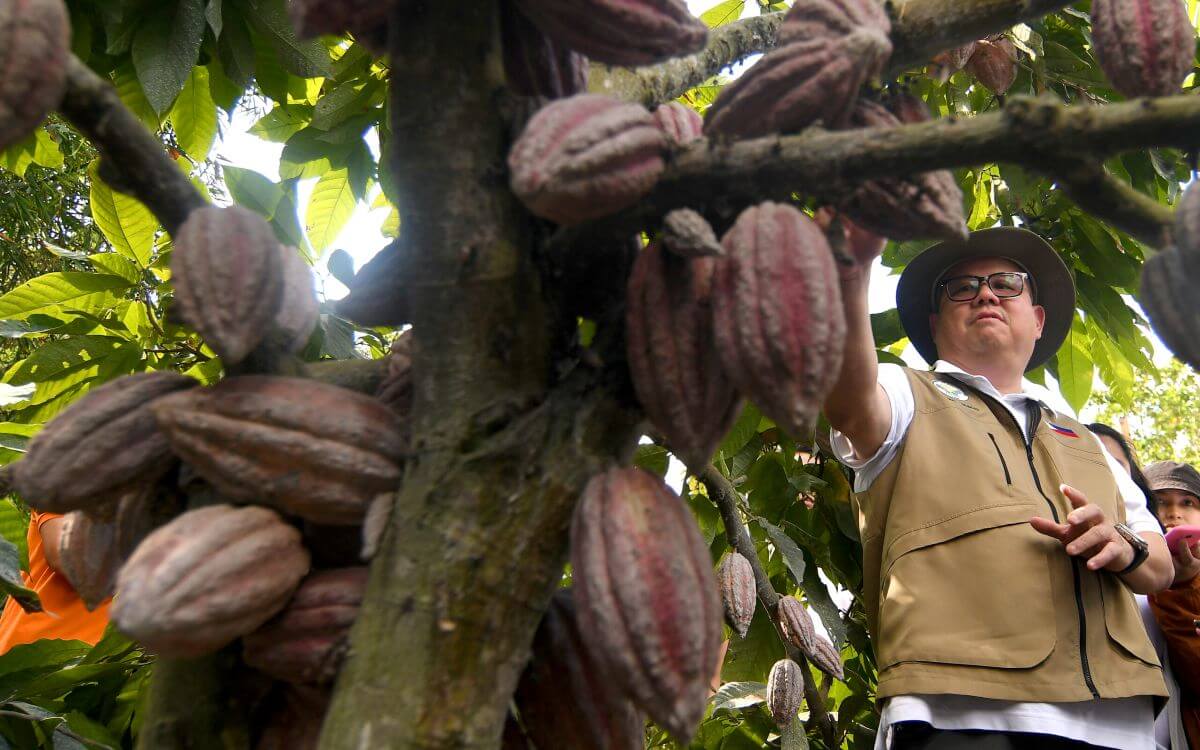

Speaking at the first Bicol Cacao Congress and the fourth Cacao Festival, Tiu Laurel emphasized that Bicol’s volcanic soil and tropical climate make it uniquely suited for cacao cultivation
He praised local progress, noting that Alea Chocolates has been officially recognized as the region’s Key Cacao Processor by both the Department of Agriculture (DA) and the Department of Trade and Industry (DTI).
The DA chief laid out a vision for a globally recognized “Bicol Cacao” brand—anchored on high quality, climate-smart farming, and community empowerment.
Updating the cacao roadmap
At the heart of the government’s initiative is the update of the Cacao Industry Roadmap, which focuses on boosting production, developing processing facilities, expanding market access, and ensuring sustainable and ethical sourcing practices.
The plan also aims to encourage private sector investments that can elevate the Philippines as a competitive supplier of quality cacao in the global market.
“Our targets are bold: higher yields, better incomes, and a stronger global footprint,” Tiu Laurel said. “But at the core is something deeper—empowering our farmers and inspiring the next generation to see cacao not just as tradition, but as a thriving, future-ready enterprise.”
Rising economic potential
Cacao’s contribution to the crop sector is steadily growing. In 2024, it generated P1.78 billion, up 49 percent from 2023, outpacing the broader crop sector’s 19 percent expansion. This surge reflects stronger demand and better farmgate prices, giving farmers more incentive to expand cultivation.
Globally, the cocoa bean market is worth $14 billion in 2024 and is forecast to reach $17 billion by 2030. Supply disruptions in Africa—the source of most global cocoa—combined with climate pressures and new European Union deforestation rules have driven cocoa prices to historic highs, peaking at over $12,000 per ton last year from just $3,200 two years earlier.
A sweet spot for opportunity
Tiu Laurel said these global shifts create a window for the Philippines to supply naturally grown, climate-resilient cacao to international markets.
The DA is backing the sector with expanded access to planting materials, rejuvenation of old farms, and investments in fermentation and drying facilities to raise quality and farmer incomes.
“Let’s make Bicol a sweet spot on the global cacao map—literally and economically,” Tiu Laurel told farmers and stakeholders. —Ed: Corrie S. Narisma